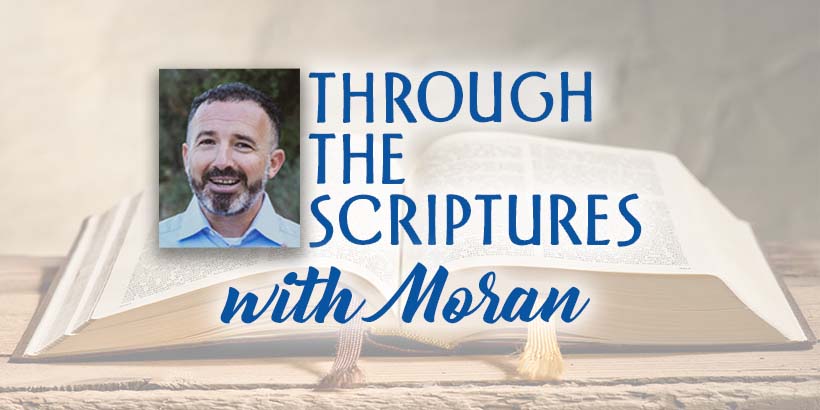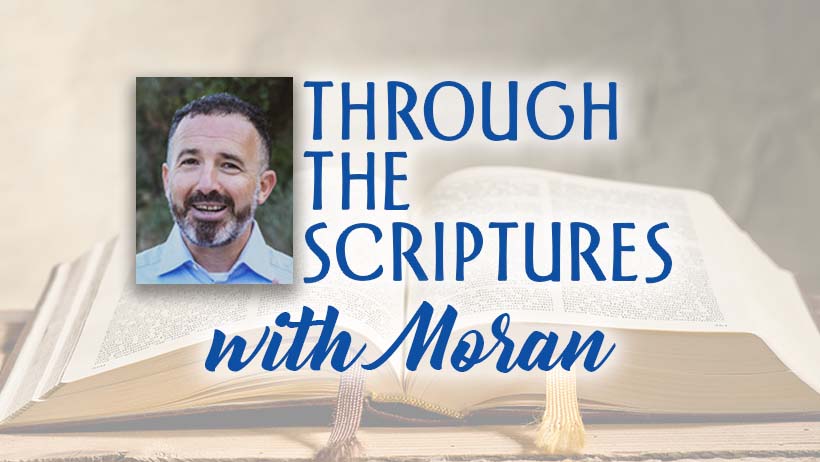
Parashat Vayeira (And He Appeared) Parashat Vayeira (And He Appeared)
Beresheet (Genesis) 18:1 – 22:24
Haftarah: II Kings 4:1-37
There are moments when we look around and can’t help but ask, “Where is God in all of this?” The chaos, the injustice, the suffering, it all seems to collide with everything we know about His goodness. Yet if there’s one thing the Word of God teaches us, it’s that even when we can’t see His hand, He is still at work. Even when His plan seems hidden, His purpose is still unfolding.
“For My thoughts are not your thoughts, nor are your ways My ways,” declares the LORD. “For as the heavens are higher than the earth, so are My ways higher than your ways, and My thoughts higher than your thoughts.”
Isaiah 55:8–9
God’s plan is never random. He reveals what we need to know, when we need to know it, and often keeps the rest for His appointed time. In Genesis 18, we read how the LORD decided to reveal His plan to bring judgment upon Sodom and Gomorrah. Before doing so, He asked:
Shall I hide from Abraham what I am about to do?
Genesis 18:17
Even Abraham, a man who walked closely with God and trusted Him with everything, did not know until the moment God chose to show him. That’s something I often need to remind myself: God’s story is not about my understanding; it’s about His sovereignty.
The same truth appears in the Haftarah. In 2 Kings 4, we meet two women whose faith was tested in very different ways. The first was a widow who had nothing left but a small jar of oil. Her future looked hopeless. But she brought what little she had before God, and He multiplied it beyond anything she could imagine. Her obedience became the vessel for God’s miracle.
Later in that same chapter, we meet the woman from Shunem. She had wealth, influence, and a generous heart, but no child. Through Elisha, God gave her a son. Years later, that same son died suddenly in her arms. Can you imagine her heartbreak? Yet even in her pain, she ran straight to the man of God and fell at his feet. And what Elisha said next has always struck me deeply:
Leave her alone, for her soul is troubled within her; and the LORD has concealed it from me and has not informed me.
2 Kings 4:27
That’s powerful. Even Elisha, the prophet through whom God worked mighty miracles, did not know what God was doing. There are moments when even the most faithful servants walk in the dark. And yet, even then, God’s plan is still in motion.
I believe many of us find ourselves in that same place today, somewhere between faith and confusion, between what we know of God and what we cannot yet understand.
Before October 7, 2023, I never imagined that human beings could descend to such evil. The atrocities committed that day were not political acts; they were demonic. The depth of cruelty, the hatred, the sheer darkness, it was evil in its purest form. It brought to mind what the prophet Zechariah wrote:
“On that day,” declares the LORD, “I will strike every horse with confusion and its rider with insanity. But I will watch over the house of Judah.”
Zechariah 12:4
That’s exactly what we witnessed. Israel’s enemies were blinded by hatred and driven by madness. But what troubles me just as much is how many in the world, even those who claim to know God, have also become blind. They see injustice where there is defense and compassion where there is cruelty. They’ve traded truth for slogans and discernment for outrage.
We must guard our hearts in these days. Do not let confusion lead you away from conviction. Truth is not always popular, but it is always worth standing for.
Yet even in all this darkness, the Haftarah reminds us that hope is never lost. When Elisha entered the home of the Shunammite woman and found her child dead, he did not panic or give up. He prayed. He stretched himself over the boy, and life returned. That moment is more than just a miracle; it’s a glimpse of God’s power to restore what seems beyond repair.
The same God who multiplied the widow’s oil and raised that child from death is still at work today. He’s still bringing life to what seems lifeless, hope to what seems hopeless, and light to the darkest corners of our world.
Our job isn’t to figure out every detail of His plan; it’s to keep trusting Him in every step. When God hides His plan, it doesn’t mean He’s absent. It means He’s preparing something greater than we can yet see. Faith doesn’t erase the pain, but it gives it purpose. And in that purpose, we find hope.
Shabbat Shalom,
Moran

